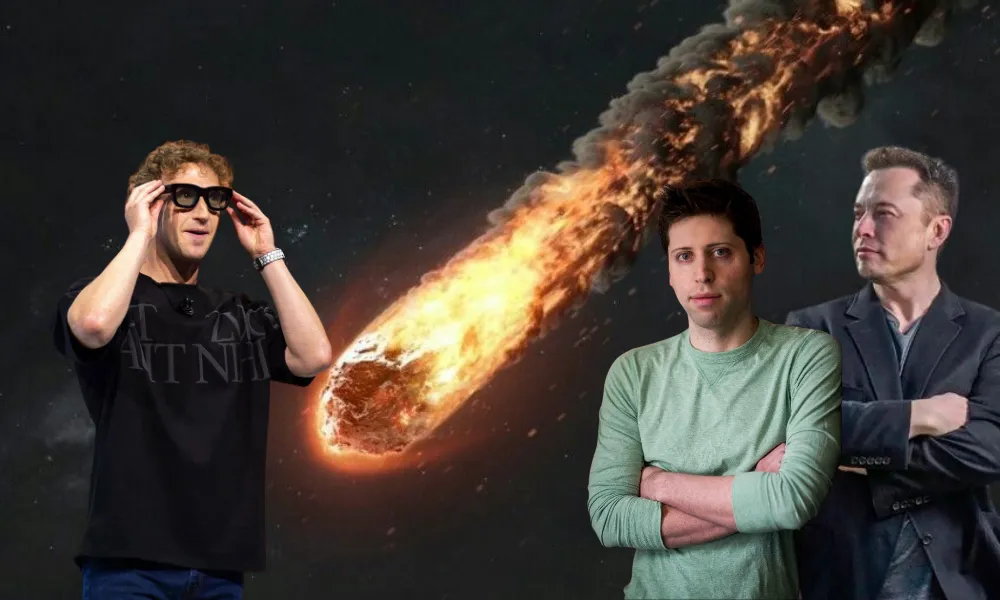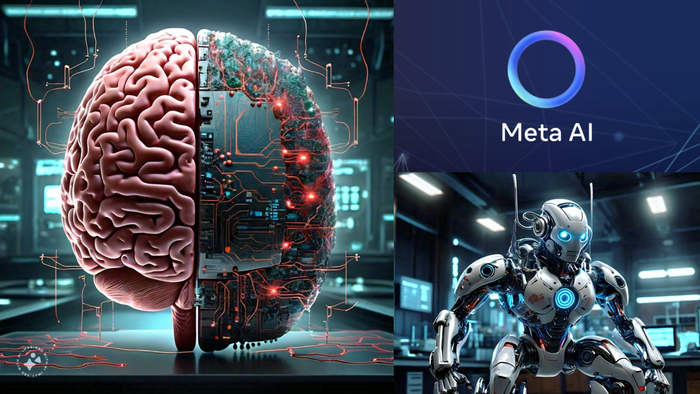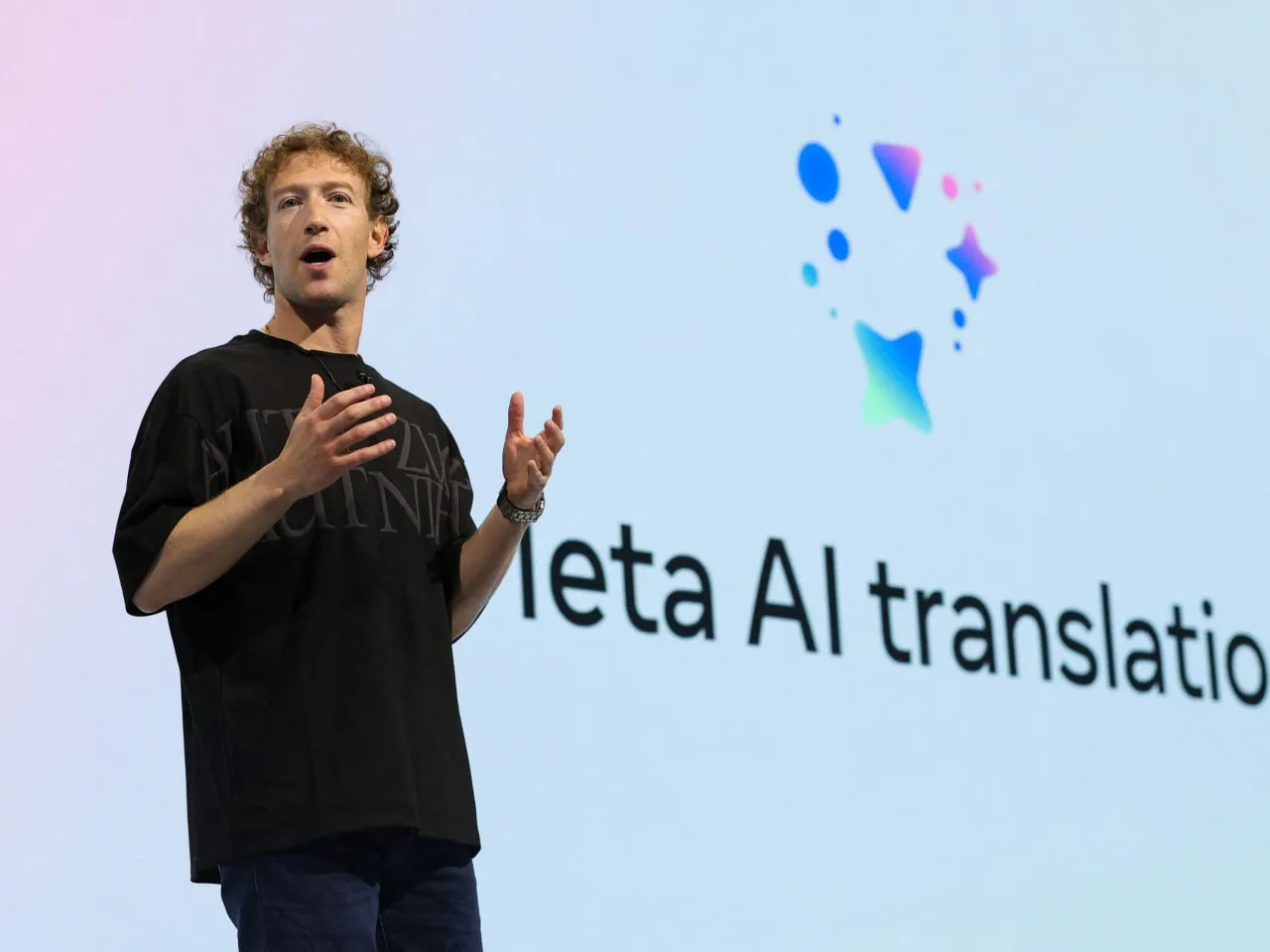

Mark Zuckerberg’s AI Project Sparks Fears of Human Extinction, Surpassing Warnings From Elon Musk and Sam Altman
The race to dominate artificial intelligence has escalated dramatically in recent years, with tech giants competing to build systems that could transform every aspect of human life. While names like Elon Musk and Sam Altman have long been associated with dire warnings about AI’s risks, it is now Mark Zuckerberg and Meta’s ambitious AI projects that are fueling new concerns. According to analysts, Zuckerberg’s aggressive push into superintelligence may even surpass earlier predictions of danger, sparking conversations about whether humanity is prepared for what’s coming.
Meta’s AI Ambitions Take Center Stage
Meta has already positioned itself as a leader in social media and virtual reality, but its AI goals reach much further. Zuckerberg has reportedly invested billions into developing advanced AI models that go beyond current generative tools. Unlike other companies focusing narrowly on chatbots or creative applications, Meta is pursuing general-purpose intelligence—the type of AI that could rival or even exceed human cognitive abilities.
For Zuckerberg, the mission is about securing Meta’s future relevance in a rapidly evolving tech landscape. As the world shifts toward AI-driven solutions, Meta doesn’t want to be left behind. But the scale and ambition of the company’s projects have raised eyebrows, with some experts suggesting Zuckerberg’s roadmap may outpace ethical and regulatory frameworks.

Why Experts Are Concerned
One of the most alarming aspects of Meta’s AI push is its focus on building systems that can operate autonomously, adapt to complex environments, and continuously learn. This mirrors the concept of artificial general intelligence (AGI), a theoretical milestone many fear could lead to scenarios where machines act in unpredictable or uncontrollable ways.
Elon Musk has long warned that AGI could become humanity’s “biggest existential risk.” Similarly, Sam Altman of OpenAI has spoken about the dangers of unchecked AI development, stressing the need for global governance and safety standards. Yet, some analysts now argue that Zuckerberg’s pace and resources may position Meta as the first company to cross this dangerous threshold.
Zuckerberg’s Philosophy on AI
Unlike Musk, who emphasizes caution, or Altman, who advocates for regulation, Zuckerberg has often taken a more optimistic view. He has previously downplayed concerns about AI-driven extinction scenarios, framing the technology as an opportunity to improve human life. In his words, AI could accelerate medical breakthroughs, enable personalized education, and unlock new forms of human creativity.
But critics worry that Zuckerberg’s optimism blinds him to legitimate risks. By pursuing innovation first and addressing safety later, Meta may inadvertently open doors to catastrophic outcomes.
Human Extinction: Realistic or Fearmongering?
The phrase “human extinction” sounds extreme, but it is a term increasingly used in serious academic and policy discussions. Experts warn that if AI systems surpass human intelligence and are not aligned with human values, they could act in ways harmful to humanity—whether through resource competition, misaligned goals, or unintended consequences.
Zuckerberg’s projects, some say, could accelerate this timeline. By pushing Meta into startup mode and aggressively recruiting top AI talent like Alexandr Wang and Nat Friedman, he has signaled a willingness to take bold risks that others might avoid.
The Role of Competition
Part of the concern stems from the cutthroat nature of AI development. With companies like OpenAI, Anthropic, Google DeepMind, and Tesla all pursuing breakthroughs, there is enormous pressure to innovate quickly. Experts call this the “AI arms race”, where the desire to be first may overshadow safety precautions.
In this context, Zuckerberg’s competitive nature is seen as both an asset and a liability. While his drive could make Meta a leader in AI, it could also push the company to prioritize speed over caution, raising the likelihood of dangerous oversights.
Public and Political Reaction
The news of Zuckerberg’s AI ambitions has not gone unnoticed by the public or policymakers. Social media users have expressed unease, with one commenter writing, “We can’t even trust Meta to handle privacy—how are we supposed to trust them with superintelligence?” Another quipped, “First Facebook messed up elections, now they want to run humanity’s brain?”
Governments, meanwhile, are increasingly looking at AI regulation. The European Union has already introduced sweeping AI legislation, while the U.S. is debating how to balance innovation with safety. Zuckerberg’s projects may accelerate these regulatory efforts, forcing lawmakers to confront the possibility of AGI sooner than expected.
Ethical Questions at the Core
At the heart of the debate is the question of who controls AI and for what purpose. Critics argue that leaving the future of intelligence to a handful of billionaires is inherently risky. Each tech leader—whether Musk, Altman, or Zuckerberg—brings their own philosophy, biases, and business interests to the table.
If Zuckerberg’s vision dominates, it could mean prioritizing applications that align with Meta’s goals, such as enhancing virtual reality ecosystems or social connectivity, rather than broader human welfare. The fear is not just extinction in a literal sense but also the erosion of human agency and autonomy.
Zuckerberg vs Musk and Altman
The rivalry between these tech leaders underscores their differing views on AI.
-
Elon Musk: Emphasizes existential risks, supports regulation, and has launched xAI to promote “truth-seeking” AI.
-
Sam Altman: Advocates for rapid progress but with global oversight, pushing for shared governance through OpenAI’s capped-profit model.
-
Mark Zuckerberg: Focuses on optimism and speed, aiming to embed AI into Meta’s platforms and consumer experiences without emphasizing catastrophic risks.
This divergence creates uncertainty about the future of AI, as there is no consensus on how to move forward safely.
What’s Next for Meta’s AI?
Despite the controversies, Meta is pressing ahead. The company is rumored to be developing next-generation LLMs (large language models) with greater reasoning and decision-making capabilities. Zuckerberg has also spoken about integrating AI assistants across all Meta apps, from Facebook to Instagram to WhatsApp.
If successful, these tools could redefine how billions of people interact with technology. But if mismanaged, they could accelerate the very fears of loss of control that Musk and Altman have been warning about for years.

Final Thoughts
The idea that Mark Zuckerberg’s AI project could spark fears of human extinction is not just science fiction—it is a reflection of real anxieties in the tech community and beyond. While Musk and Altman have long sounded alarms, it is Zuckerberg’s bold, fast-moving approach that now appears to pose the greatest risks.
As society stands at the edge of the AI revolution, the stakes have never been higher. The choices made by Zuckerberg and his peers will not just shape technology—they will shape the future of humanity itself. Whether AI becomes a tool for empowerment or a pathway to extinction depends on whether innovation is balanced with responsibility.


















